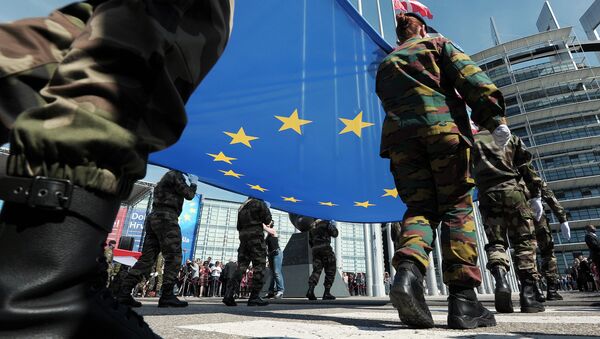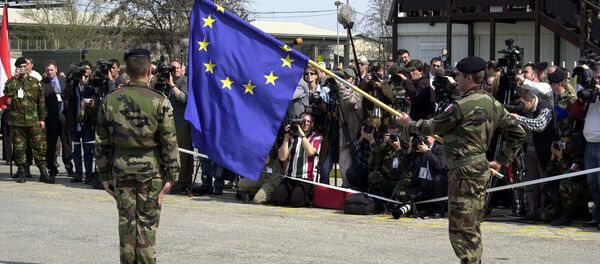His remarks came after Italian Defense Minister Roberta Pinotti told the Il Messaggero newspaper late last week that Italy, France, Germany and Spain should strengthen mutual cooperation in order to create the so-called Defense Schengen.
The newspaper quoted Pinotti as saying that these four countries should consider greater cooperation to make sure it happens as soon as possible.
According to her, NATO deems it important to see Europe's united efforts to deal with its defense strategy aimed at boosting European defense capability.
Notably, in last year's article published by the French daily Le Monde, Pinotti wrote that the aim of the initiative will not be the creation of a "European Army," but of a "European Multinational Force."
According to her, the force will include a single command and budget and it will not compete with NATO, but rather supplement the alliance.
Konovalov remained downbeat about the prospects of the Defense Schengen, which he said will be unable to grapple with present-day challenges.
"Modern Europe is not ready for a real confrontation with a real enemy. They cannot confront terrorists and resolve a problem because the declared liberal values run counter to the real situation, which is becoming more and more threatening. The enemy can only be confronted by means of the use of force and any entreaties are useless," he said.
In contrast, Russian military expert Konstantin Sivkov told RT that even if the US decides to withdraw its troops from Europe, this process will take years, which means that European countries will have time to create their own defense forces.
"The Europeans will have enough time to restore their [defense] potential. I think they will be able to fulfil the task especially given that France is a nuclear power," he said.
Konovalov, for his part, drew attention to the fact that Germany's military interests are concentrated in the Balkans, while France is interested in promoting its military aspirations in Africa.
These "historical contradictions" between Germany and France may have a negative impact on the existence and effective functioning of the potential European Defense Schengen, according to him.
"These parallel overlapping structures will certainly require significant expenses. But currently, even the world's leading economies cannot afford spending budget funds on additional goals," he said.
Never miss a story again — sign up to our Telegram channel and we'll keep you up to speed!





